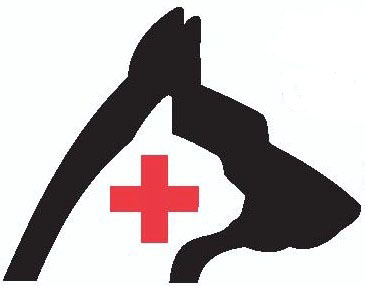Urgent care for outpatients is a very common. Often things that are uncomfortable, painful, traumatic, or irritating, but not life-threatening occur to our pets. Common urgent care issues include trauma such as getting cut on a fence or bit by a dog, ear infection, bladder infection, or allergic reactions. We try to treat your pets urgent care needs as quickly as possible when your veterinarian is not available to treat your pet. Due to being an ER, urgent cases may have to wait longer than emergent cases, but know we are doing our best to get your pets needs met.
Frequently Asked Questions
When your pet is ill, painful or just not right what should you do?
Allergic reactions are very common. They may be caused by insect bite or sting, vaccines, medication, mast cell tumors, or sometimes food. The good news is allergic reactions in pets are typically much less severe than in people and “closing of the throat” is very rare. The bad news is severe reactions can be very uncomfortable, swelling can cause tissue damage and death is a remote possibility. Since it is often hard to determine how rapidly a reaction will worsen and often antihistamine alone is not sufficient to stop a serious reaction, exam and injectable medication may be recommended if a reaction is developing. If the reaction is mild, then Benadryl Allergy (25 mg diphenhydramine) is often recommended. See the website PetMD for information about giving Benadryl to pets.
The answer to this question is 2 fold. First will your pet die from waiting until tomorrow to get an ear infection treated, of course not. Secondly can we start to make your pet feel much more comfortable and start to treat an ear infection quickly? Absolutely, by starting treatment sooner your pet will be feeling better sooner. Many day time veterinary practices are booked out days to weeks for urgent cases and sometimes coming to the ER is the only rapid way to get relief. Waiting too long can result in the ear infection worsening to the point of scaring of the ear canal or development of an Aural hematoma. Treating the ear infection promptly may help reduce risk of these events.
Inappropriate urination should always be evaluated because it may indicate a more significant issue. If your pet is urinating a good amount of clear/yellow urine and is otherwise acting normally, they can probably wait until tomorrow to see your veterinarian if you prefer. If the urine is red, your pet is straining, inappetence develops, vomiting occurs, or urination is so frequent to be disrupting normal routine, then urgent exam is recommended. If possible, collect urine before coming to the clinic or make attempt to not let your pet urinate on the way into the ER. It is amazing how many people let their dog urinate on the bushes outside and then come into the clinic concerned about their pets urination. A urinalysis will likely be recommended and if the bladder is empty then we will need to wait for your pet to make more urine before being able to collect it. Bladder infection is common in female dogs, but may indicate other issues such as bladder stones, kidney disease, diabetes or bladder cancer.
Yes, any wound can become infected and staring antibiotic is usually recommended. Depending on the cause of the wound other care may be needed. Wounds are painful and therefore pain medication and anti-inflammatories are often prescribed. The depth of wound is hard to tell in small wounds and the wound will likely need to be clipped to assess the full extent of the wound. Clipping the wound also helps to make keeping the wound clean easier. Putting creams on the wounds at home is not recommended because the pets usually just lick them off and some creams can be toxic. It is much easier to treat a small fresh wound than it is to treat a worsening, small infected wound.
The bottom line is if you are concerned about your pet please call a veterinarian. If your veterinarian is closed, then we are here to answer questions and give recommendation of when to come in for exam.
